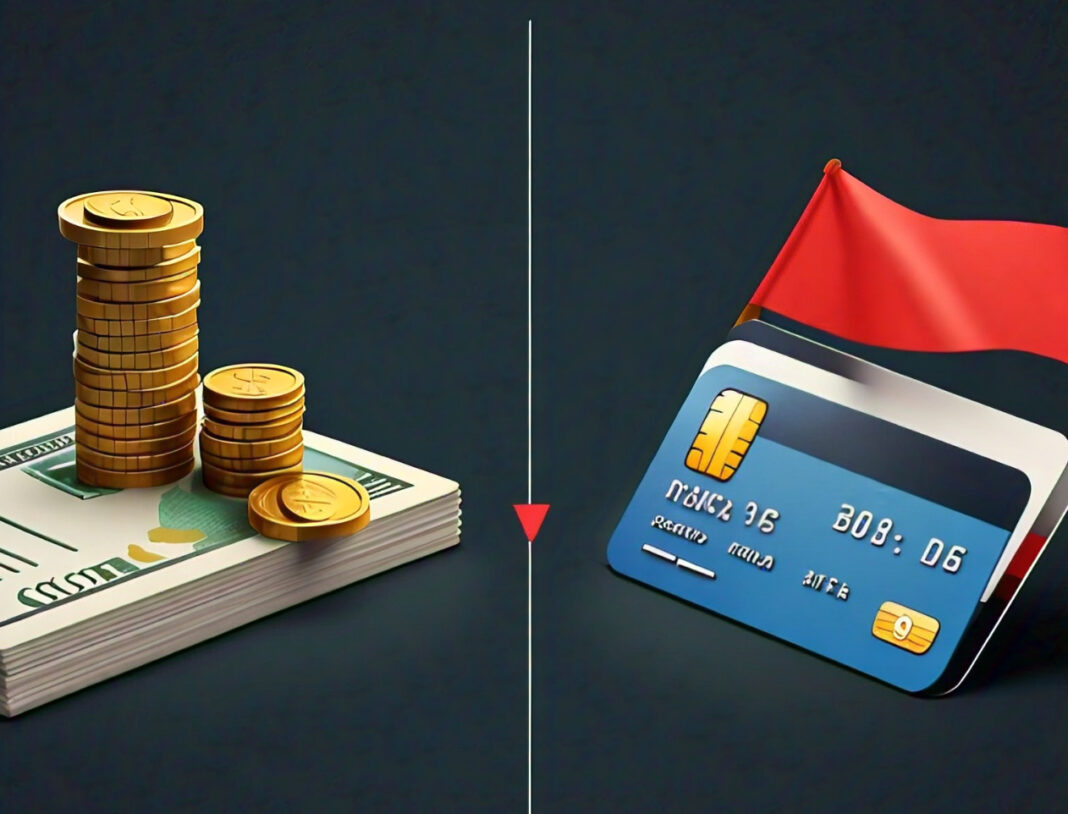
The music industry has long been plagued by inefficiencies, inequities, and outdated practices. From opaque royalty payment systems to restrictive distribution models, artists, labels, and publishers have struggled to adapt to the digital age. However, the emergence of blockchain technology and cryptocurrency has brought new hope for transformation. By leveraging decentralized networks, smart contracts, and tokenization, the music industry can address longstanding pain points, unlock new revenue streams, and empower artists like never before.
As a music industry professional or cryptocurrency enthusiast, understanding the impact of crypto on the music industry is crucial for navigating this evolving landscape. This article will delve into the transformative potential of blockchain and crypto, exploring their applications in music distribution, royalty payments, copyright management, and more. We’ll examine real-world examples, success stories, and the latest developments, providing a comprehensive guide to the intersection of crypto and music.
Improving Music Distribution
Traditional Models vs. Blockchain-Based Platforms
Traditional music distribution models rely on intermediaries like record labels, distributors, and aggregators, leading to:
- Revenue losses: Artists and publishers often receive only a fraction of the revenue generated by their work.
- Limited access: New artists struggle to break into the industry, and independent labels face barriers to distribution.
- Inefficiencies: Manual processing, delayed payments, and lack of transparency plague the system.
Blockchain-based music distribution platforms, like:
- Audius: A decentralized streaming platform using blockchain to connect artists directly with fans.
- Revelator: A platform utilizing blockchain for transparent royalty tracking and distribution.
- Ujo Music: A decentralized music platform allowing artists to manage their own music and connect with fans.
Offer benefits such as:
- Decentralization: Artists and publishers maintain control and ownership.
- Transparency: Clear, tamper-proof records of ownership and transactions.
- Efficiency: Automated processing, faster payments, and reduced costs.
Real-Life Examples
- Imogen Heap: The Grammy-winning artist used blockchain-based platform Ujo Music to release her single “Tiny Human,” allowing her to maintain ownership and connect directly with fans.
- TuneRegistry: A blockchain-based rights management platform, partnered with Audius to provide transparent royalty tracking and distribution for artists.
Enhancing Royalty Payments
Traditional Royalty Systems vs. Blockchain-Based Solutions
Traditional royalty payment systems are often:
- Opaque: Lack of transparency in royalty tracking and distribution.
- Inefficient: Manual processing, delayed payments, and high administrative costs.
- Inaccurate: Errors in royalty calculations and payments.
Blockchain-based royalty payment solutions, like:
- Songclip: Utilizes AI and blockchain for accurate, real-time royalty tracking and distribution.
- Revelator: Offers transparent royalty tracking and distribution, ensuring artists and publishers receive fair compensation.
- Audius: Uses blockchain to connect artists directly with fans, ensuring transparent and efficient royalty payments.
Provide benefits such as:
- Transparency: Clear, tamper-proof records of royalty transactions.
- Accuracy: Automated royalty tracking and distribution minimizes errors.
- Efficiency: Faster payments, reduced administrative costs.
Real-Life Examples
- Kanye West: Partnered with Songclip to utilize AI and blockchain for accurate royalty tracking and distribution.
- TuneCore: A music distribution service, partnered with Audius to offer artists transparent and efficient royalty payments.
Protecting Intellectual Property

Traditional IP Protection vs. Blockchain-Based Solutions
Traditional intellectual property (IP) protection methods are often:
- Vulnerable: Prone to piracy, copyright infringement, and ownership disputes.
- Inefficient: Manual registration processes, costly litigation, and limited global protection.
- Opaque: Lack of transparency in ownership and rights management.
Blockchain-based IP protection solutions, like:
- Mycelia: Uses blockchain to create a decentralized, transparent database for music ownership and rights management.
- Ujo Music: Offers a blockchain-based platform for artists to manage their own music and connect with fans, ensuring transparent ownership and rights.
- Revelator: Provides a blockchain-based platform for transparent royalty tracking, distribution, and rights management.
Provide benefits such as:
- Immutable ownership records: Tamper-proof, transparent records of ownership and rights.
- Automated rights management: Efficient, automated management of rights and royalties.
- Global protection: Decentralized, global protection of IP rights.
Real-Life Examples
- Imogen Heap: Utilized Mycelia to create a decentralized database for her music ownership and rights management.
- RAC: Partnered with Ujo Music to manage his music and connect with fans, ensuring transparent ownership and rights.
Exploring New Revenue Streams
Traditional Revenue Streams vs. Blockchain-Based Opportunities
Traditional revenue streams in the music industry are often:
- Limited: Reliant on album sales, streaming, and live performances.
- Inefficient: Middlemen take significant cuts, leaving artists with minimal earnings.
- Unpredictable: Revenue fluctuates based on external factors like market trends and piracy.
Blockchain-based revenue streams offer new opportunities, such as:
- Tokenization: Artists can create and sell unique digital assets, like tokens, representing ownership or exclusive experiences.
- NFTs (Non-Fungible Tokens): Artists can create and sell unique digital collectibles, like art or exclusive content.
- Decentralized Finance (DeFi): Artists can access new funding models, like decentralized lending and crowdfunding.
Real-Life Examples:
- Grimes: Sold exclusive digital art pieces as NFTs, generating significant revenue.
- Kings of Leon: Tokenized their album “When You See Yourself,” offering fans unique experiences and ownership.
- Audius: Partnered with DeFi platforms to offer artists decentralized funding options.
Benefits include:
- New income sources: Artists can access previously untapped revenue streams.
- Increased control: Artists maintain ownership and control over their work.
- Direct fan engagement: Artists can connect directly with fans, offering exclusive experiences.
Solving Industry Pain Points
Piracy and Copyright Infringement
- Traditional solutions: Often ineffective, relying on lawsuits and takedowns.
- Blockchain-based solutions:
- Decentralized content identification: Uses blockchain to identify and track copyrighted content.
- Automated royalty payments: Ensures artists receive fair compensation for their work.
- Transparent ownership records: Prevents ownership disputes and ensures clear rights management.
Real-Life Example:
- Mycelia: Uses blockchain to create a decentralized database for music ownership and rights management, helping to prevent piracy and copyright infringement.
Royalty Transparency and Accuracy
- Traditional solutions: Often opaque, with manual processing and delayed payments.
- Blockchain-based solutions:
- Transparent royalty tracking: Uses blockchain to create an immutable record of royalty transactions.
- Automated royalty payments: Ensures timely and accurate payments to artists and publishers.
- Decentralized rights management: Eliminates intermediaries, ensuring artists receive fair compensation.
Real-Life Example:
- Audius: Uses blockchain to connect artists directly with fans, ensuring transparent and efficient royalty payments.
Artist Compensation and Fairness
- Traditional solutions: Often unfair, with artists receiving minimal earnings.
- Blockchain-based solutions:
- Decentralized funding models: Offers artists new funding options, like decentralized lending and crowdfunding.
- Tokenization: Allows artists to create and sell unique digital assets, representing ownership or exclusive experiences.
- Transparent revenue sharing: Ensures artists receive fair compensation for their work.
Real-Life Example:
- RAC: Partnered with Ujo Music to manage his music and connect with fans, ensuring transparent ownership and rights, and fair compensation.
Investment and Partnership Opportunities

Investment Opportunities in Music-Related Blockchain Projects
- Token sales: Invest in blockchain-based music projects, like Audius, Revelator, and Ujo Music.
- Equity investments: Invest in music-related blockchain startups, like Mycelia and Songclip.
- Decentralized funding models: Participate in decentralized lending and crowdfunding platforms, supporting music-related projects.
Real-Life Example:
- Audius: Raised $5.5 million in token sales to develop their decentralized music streaming platform.
Partnership Opportunities Between Crypto Companies and Music Industry Players
- Collaborations: Partner with blockchain-based music platforms, like Audius and Revelator, to offer exclusive content and experiences.
- Licensing agreements: License music content to blockchain-based platforms, ensuring fair compensation and transparency.
- Joint ventures: Collaborate with crypto companies to develop new music-related blockchain projects.
Real-Life Example:
- TuneCore: Partnered with Audius to offer artists transparent and efficient royalty payments, and access to decentralized funding models.
Benefits of Investment and Partnership
- Access to new revenue streams: Tap into emerging blockchain-based music markets.
- Increased transparency and fairness: Ensure fair compensation for artists and publishers.
- Innovation and growth: Drive innovation and growth in the music industry through blockchain adoption.
Enhancing Fan Engagement
Blockchain-Based Fan Engagement Platforms
- Decentralized social networks: Platforms like Audius and Revelator enable artists to connect directly with fans.
- Tokenized fan experiences: Offer exclusive experiences, like backstage passes or meet-and-greets, in exchange for tokens.
- Virtual merchandise: Sell unique digital merchandise, like NFTs, to fans.
Real-Life Example:
- Kings of Leon: Tokenized their album “When You See Yourself,” offering fans exclusive experiences and ownership.
Fan Loyalty Programs
- Token-based rewards: Reward fans with tokens for attending concerts, buying merchandise, or sharing content.
- Decentralized loyalty programs: Use blockchain to create transparent, tamper-proof loyalty programs.
- Exclusive content: Offer exclusive content, like behind-the-scenes footage, to loyal fans.
Real-Life Example:
- Maroon 5: Partnered with blockchain-based fan engagement platform, Fanbase, to offer exclusive content and experiences to fans.
Benefits of Enhanced Fan Engagement
- Deeper fan connections: Artists can build stronger relationships with fans.
- New revenue streams: Tokenized fan experiences and virtual merchandise offer new revenue opportunities.
- Increased fan loyalty: Transparent, token-based loyalty programs encourage fan loyalty.
Protecting Intellectual Property
Blockchain-Based IP Protection Solutions
- Decentralized registries: Platforms like Mycelia and Ujo Music create decentralized, tamper-proof registries for music ownership and rights.
- Smart contracts: Automate royalty payments and rights management using smart contracts.
- Digital watermarking: Use blockchain-based digital watermarking to track and identify copyrighted content.
Real-Life Example:
- Imogen Heap: Utilized Mycelia to create a decentralized database for her music ownership and rights management.
Benefits of Blockchain-Based IP Protection
- Immutable ownership records: Tamper-proof records of ownership and rights.
- Automated royalty payments: Ensure fair compensation for artists and publishers.
- Transparent rights management: Decentralized, transparent management of rights and royalties.
Real-Life Examples of IP Protection
- Grimes: Sold exclusive digital art pieces as NFTs, ensuring ownership and rights management.
- RAC: Partnered with Ujo Music to manage his music and connect with fans, ensuring transparent ownership and rights.
Real-World Examples and Success Stories
Music Industry Use Cases
- Audius: Decentralized music streaming platform with over 5 million monthly active users.
- Revelator: Blockchain-based royalty tracking and distribution platform, partnering with major labels and publishers.
- Ujo Music: Decentralized music platform, empowering artists to manage their own music and connect with fans.
Success Stories
- Imogen Heap: Utilized blockchain to create a decentralized database for her music ownership and rights management, ensuring transparency and fairness.
- Grimes: Sold exclusive digital art pieces as NFTs, generating significant revenue and demonstrating the power of blockchain-based ownership.
- Kings of Leon: Tokenized their album “When You See Yourself,” offering fans exclusive experiences and ownership, and showcasing the potential of blockchain-based fan engagement.
Benefits Demonstrated
- Increased transparency and fairness: Blockchain-based solutions ensure accurate royalty payments and transparent ownership records.
- New revenue streams: Tokenized fan experiences, NFTs, and decentralized funding models offer new revenue opportunities.
- Empowered artists: Blockchain-based platforms enable artists to manage their own music, connect directly with fans, and maintain ownership and control.
Conclusion
The music industry is undergoing a significant transformation, driven by the adoption of blockchain technology and cryptocurrency. By providing a decentralized, transparent, and secure platform for music ownership, rights management, and royalty payments, blockchain is empowering artists, publishers, and labels to take control of their work and connect directly with fans.
Key Takeaways
- Blockchain increases transparency and fairness: Accurate royalty payments, transparent ownership records, and decentralized rights management.
- New revenue streams emerge: Tokenized fan experiences, NFTs, and decentralized funding models.
- Artists are empowered: Manage their own music, connect directly with fans, and maintain ownership and control.
Future Outlook
- Mainstream adoption: Blockchain technology will become increasingly mainstream in the music industry.
- Innovation and growth: New use cases, platforms, and business models will emerge, driving innovation and growth.
- Global impact: Blockchain will have a profound impact on the global music industry, enabling artists and creators to thrive.
Real-Life Examples
- Audius: Decentralized music streaming platform with over 5 million monthly active users.
- Imogen Heap: Utilized blockchain to create a decentralized database for her music ownership and rights management.
- Grimes: Sold exclusive digital art pieces as NFTs, generating significant revenue and demonstrating the power of blockchain-based ownership.
In conclusion, blockchain technology is revolutionizing the music industry, providing a decentralized, transparent, and secure platform for music ownership, rights management, and royalty payments. As adoption continues to grow, we can expect to see new innovations, business models, and global impact.






